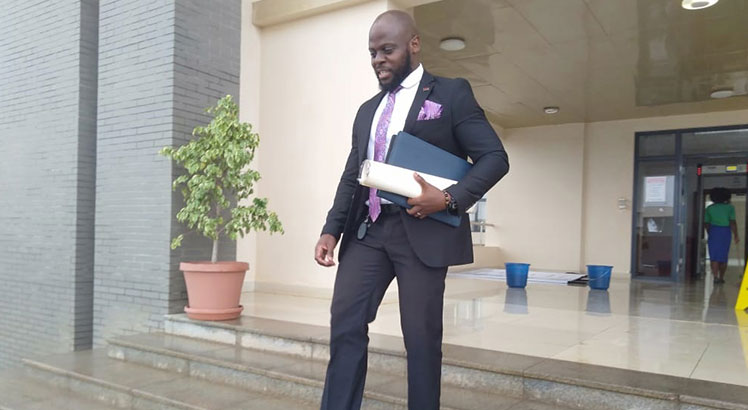EU hopeful on Malawi IMF deal
European Union (EU) Ambassador Rune Skinnebach says he is hopeful the forthcoming International Monetary Fund ( IMF) assessment mission on Malawi’s performance will lead to clinching of an Extended Credit Facility (ECF) programme.
Speaking in an interview in Lilongwe on Thursday, he said while the IMF’s ECF will not instantly rectify the structural deficit facing Malawi, it will bring in foreign exchange and have a catalytic effect on many development partners, including the EU to resume direct budgetary support.
Said Skinnebach: “There will be another [IMF] mission in late August or early September that will do the assessment and make recommendations to the IMF executive board. I hope that this will result in an Extended Credit Facility for Malawi.
“I hope it will come, so it will pave the way for our [EU] budget support, but also support from other development partners and then hopefully, it will help create a more conducive business and investment climate.
“I really want to see more foreign direct investment and a legislative framework that attracts foreign investors to come to Malawi instead of other nearby countries.”
ECF provides medium-term financial assistance to low-income countries with protracted balance of paymentsproblems. The ECF is one of the facilities under the Poverty Reduction and Growth Trust.

On July 28 2023, an IMF mission visited Malawi to conduct the first review of the country’s performance towards qualifying for the ECF and suggested that Malawi was on track under the Staff Monitored Programme. However, there were concerns on other key indicators such as public expenditure and rising public debt.
Commenting on the forex, fuel, debt and hunger crises, the EU Ambassador said the key to ending these challenges is for Malawi to either produce and export more or import less.
He expressed concern that more than four million people, about 20 percent of the country’s population, will be food insecure in the lean season, saying this is not because there is no sufficient food in the country, but due to high cost of food.
“So it comes down to poverty. For me this is very sad, we are trying to come in with intermediate solutions, which is, cash transfers for those mostly in need, but that does not adjust to the structural deficit. It’s just temporary,” said Skinnebach.
In an earlier interview, Malawi University of Business and Applied Sciences associate professor of economics Betchani Tchereni said the EU’s plan to resume direct budgetary support would help to stabilise the country’s balance of payment (BoP) and the budget in general.
“The development budget needs more support from elsewhere. In the case of the EU, it is a budgetary injection which is in foreign currency, this can help to stabilise our BoP and the budget. It is, therefore, a very good thing,” he said.
In a separate interview, Minister of Finance and Economic Affairs Sosten Gwengwe said budget support frees up fiscal space, which allows the use of scarce resources for other developmental projects.
“We are concentrating on the education and public finance management sectors,” he said.
On November 21 2022, the IMF board of directors approved a disbursement of $88.3 million (about K91 billion) through a Rapid Credit Facility through the Food Shock Window.
The emergency financing was aimed at helping Malawi address the urgent balance of payment and fiscal needs related to the global food crisis.
Between May 25 and June 3 last year, the IMF mission held discussions with Malawi Government officials and the fund raised two important issues that government needed to address such as managing debt and resolving issues of misreporting of figures.
EU and other donors under what was called the Common Approach to Budget Support such as the World Bank and the United Kingdom stopped providing direct budgetary support to Malawi in September 2013 following revelations of Cashgate, the plunder of public resources at Capital Hill through inflated invoices, payment for goods and services not rendered or delivered and fraud.
The development left Malawi with an estimated 40 percent hole in the recurrent budget and about 80 percent in the development budget as the donors opted to channel resources in form of off-budget support through international non-governmental organisations.
Since the donor flight, Malawi has relied on high and unsustainable borrowing to finance its ballooning fiscal deficit amid dwindling domestic revenues that are too low to meet its planned expenditure.





